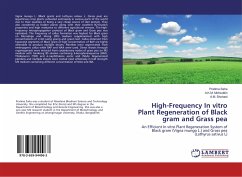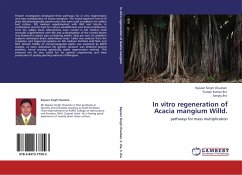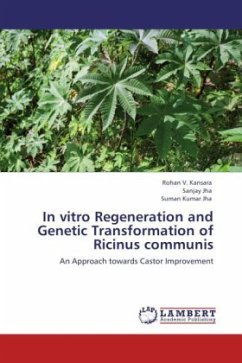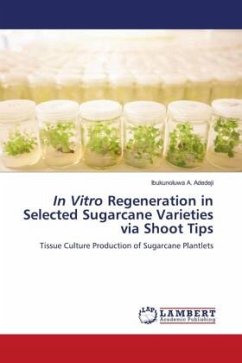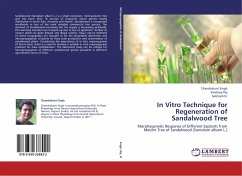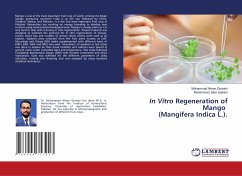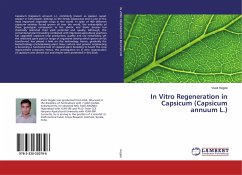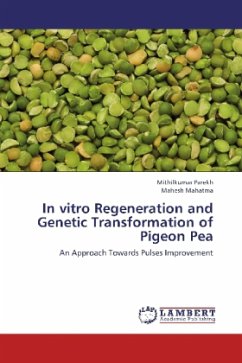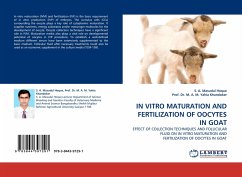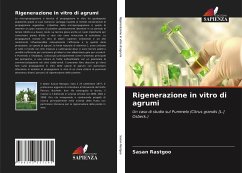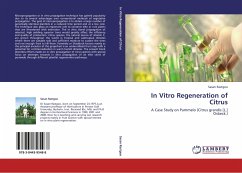
In Vitro Regeneration of Citrus
A Case Study on Pummelo (Citrus grandis [L.] Osbeck.)
Versandkostenfrei!
Versandfertig in 6-10 Tagen
45,99 €
inkl. MwSt.

PAYBACK Punkte
23 °P sammeln!
Micropropagation or in vitro propagation technique has gained popularity due to its several advantages over conventional methods of vegetative propagation. The goal of micropropagation is to obtain a large number of genetically identical plantlets in a reduced time period and at a low cost. The technique also plays an important role to conserve elite or rare plants that are threatened with extinction. The in vitro clonal propagation of selected, high yielding superior trees would greatly affect the efficiency and quality of production. Citrus species, the natural source of vitamin C, are grown...
Micropropagation or in vitro propagation technique has gained popularity due to its several advantages over conventional methods of vegetative propagation. The goal of micropropagation is to obtain a large number of genetically identical plantlets in a reduced time period and at a low cost. The technique also plays an important role to conserve elite or rare plants that are threatened with extinction. The in vitro clonal propagation of selected, high yielding superior trees would greatly affect the efficiency and quality of production. Citrus species, the natural source of vitamin C, are grown throughout the world in tropical and subtropical climates where there are suitable soils and sufficient moisture to sustain the trees and not enough frost to kill them. Pummelo or Shaddock known mainly as the principal ancestor of the grapefruit is an underutilized fruit crop with a potential for commercialization in warm humid climates. The present book describes efforts made on in vitro propagation of citrus species with special focus on attempts towards in vitro propagation of an elite clone of pummelo through different plantlet regeneration pathways.



